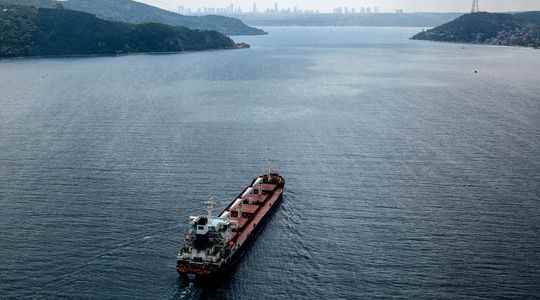First, there is the audacity to accuse the countries of the European Union of being at the origin of an “unprecedented humanitarian catastrophe”, when one is oneself responsible for tens of thousands of dead and several million refugees. After this observation, there is, then, to verify precisely the statements of Vladimir Putin, pronounced Wednesday, September 7 during an economic forum organized in Vladivostok. “Almost all the cereals exported from Ukraine are sent not to developing countries and the poorest countries, but to the countries of the European Union”, launched the master of the Kremlin before an assembly made up of many economic leaders from ‘Asia. “What we observe is a deception, a rude and reckless attitude towards these partners for whom all this was supposed to be done”. So, are the European countries behaving like “colonialists”, filling their granaries with cereals to the detriment of the poorest countries, which are in dire need of it?
Ukraine was quick to react, denouncing “a lie”, and assuring that “two-thirds of the deliveries” went “to Africa, Asia and the Middle East”. The Minister of Foreign Affairs, Dmytro Pavlenko, even listed some of the receiving countries: Egypt, Iran, India, Somalia and even Libya, and took the opportunity to recall that the responsibilities for the food situation were not shared: “The only reason for the worsening of the global food crisis this year remains the brutal war launched by Russia, which blocked Ukrainian seaports and deliberately destroyed agricultural infrastructure and logistics”, said added the minister. But the Ukrainian voice not being neutral, a legitimate body took on the task of settling the debate.
A possible challenge to the cereals agreement
According to the Joint Coordination Center in Istanbul, the body responsible for overseeing the agreement reached at the end of July between Russia and Ukraine, 100 ships have left Ukrainian ports since the beginning of the month. August, and they transported exactly 2,334,310 tons of grain. As for the countries delivered, he cites in particular Turkey (up to 20% of the total), Spain (15%), Egypt (10%), China (7%), and Italy (7%). ). In all, European countries received 36% of exports, and African countries 17%. The CCC assures that “30% of cargo went to low-income or lower-middle-income countries”. Much of the grain sent to Turkey is re-exported elsewhere, particularly to countries in the Middle East and North Africa.
These facts established, it remains to be seen why Vladimir Putin seems to care about the food health of poor countries. For Galia Ackerman, a specialist in post-Soviet Russia, it could be “a strategy to question the process of exporting grain through the Black Sea”, by placing the responsibility for the halt on Westerners. Putin seems to have almost admitted it, when he asked himself, aloud, if “we should not think about how to limit the export of cereals and other food products in this way?” . For several weeks, Moscow has been complaining about obstacles affecting its own food exports, due to western sanctions. Under the guise of solidarity, Russia could therefore use the delicate situation of poor countries to take revenge.
